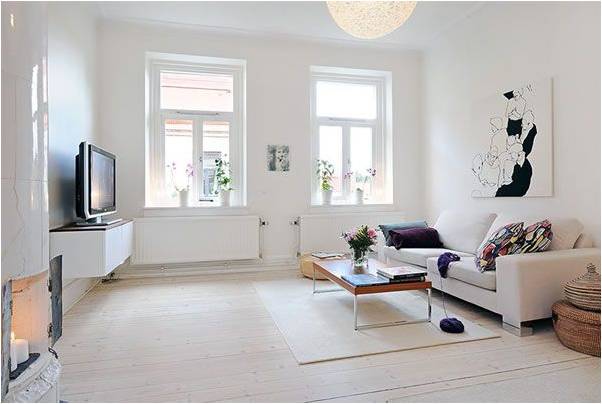 Q: What is the procedure for the owner to give his property on lease?
Q: What is the procedure for the owner to give his property on lease?
A: The owner has to satisfy in writing to the society committee the inability to occupy the flat with a genuine reason, mentioning that he will continue to pay the maintenance charges including Non-occupancy charges (upto 10% max).
If a member wants to sublet the premises and society is not giving permission, then in such circumstances the Registrar as per the new bye-laws will have the power to issue permission to sublet the premises.
On failure to get vacant possession of the flat on expiry of the period of sub-letting, member shall join the society as a party to the proceedings to initiate necessary legal proceedings against the sub-lettee, licensee or care-taker, and meet the cost of the legal proceedings required to be incurred by the society.
Q: What is the procedure for registering online the lease agreement?
A: Maharashtra government lets you do online registration of your “Leave and License” (rental) agreement at www.anulom.com or online at the government site or https://efilingigr.maharashtra.gov.in/ereg/MainForm.aspx. The website lets you calculate the registration charges and pay online. The owner, tenant and the 2 witnesses should have their Aadhaar card, PAN card, property address proof and a biometric device to scan fingerprint. A registered agreement acts as an address proof for the tenant, and a safety net for the owner.
Q: What documents have to be submitted to the society?
A: Registered ‘Leave and License’ agreement copy; Police verification; Form 27 (Under Bye-law 43(2)(i) is an application to sub-let; Form 11 signed by sub-lettee.
Q: Does the person renting a flat have the right to park his car in the building?
A: If the Lessor owns a parking space, then the said parking space can be given to Lessee because that could be part of agreement. However if the open parkings are less, in such scenario the permanent residents have the first right.
Q: Are there certain restrictions an owner can put on a person renting his flat — like no pets, no non-vegetarian food, bachelors, etc?
A: No. There is no such provision in law. This is matter of personal choice whom to lease and whom not to. For example there are no rules as to how many maximum number of people can stay in the rented flat. If the society has not passed any resolution, then bachelors can stay in rented flats.
Q: Does the person who is staying on rent have any say in housing society matters?
A: The person who is staying on rent in a building, which has a housing society, has no say in the affairs of the society. However they are at par with other members of a society, for peaceful use of all services available in society unless it’s a membership of a club in a society, which may not be transferable. Also, the Lessee can place suggestions in the housing society, which may or may not be accepted by the Managing Committee. It is ideal to keep the owner of the flat informed.
Q: If I rent a flat and live on lease does the lease have to be for 11 months?
A: ‘The Maharashtra Rent Control Act, 1999’ says there is no stipulation as to whether ‘Leave and License’ agreement should be in multiples of 11 or 12 months, and there is no stipulation as to total time period. However ‘Leave and Licence’ agreement generally does not exceed three years. But the new rule effective from May 7, 2005 states that you can do a ‘Leave & License’ agreement now for a period up to five years and in multiples of 12 months each. Owners may refuse to renew for various reasons since they may be uncomfortable with their lessee.
An instrument creating a lease of immovable property for a term of one year and above was required compulsorily to be registered by virtue of provisions of Section 17(d) of the Indian Registration Act. Therefore, such ‘Leave & License’ Agreements were being executed for a period of 11 months with the dual intention, namely, to avoid the stamping of such an agreement and its registration and secondly to avoid interpreting such ‘Leave & License’ Agreement as a lease of the immovable property to avoid protection against vacation of the occupier, as per the provisions of the said Bombay Rent Act.
Also, another reason for making an agreement on an 11-month basis by the property owner is to shy away from the ‘Rent Control Law’ provision of giving six months notice at the end of those 12 months. If the agreement is for 11 months then even a minimum period of notice, say, seven days, would suffice.
Q: What is the basic difference between possession and occupation?
A: As per law, ‘Possession’ implies control of the property. It could be actual or possession in law. On the other hand, the term, ‘occupation’ is understood in the sense of a physical presence in the premises concerned, usually for a period of time.
Q: Can an owner terminate a lease agreement mid-way?
A: Unless the Lessee has violated terms of Leave and License agreement, owner cannot re-claim the flat mid-way. A lease can be terminated midway by the owner, only if there are violations related to agreement. These could be exit clauses. The common violations that could lead to re-claim are (a) Renovating flat without permission of Licensor (b) Sub-letting (c) Illegal or immoral activities in flat (d) Some anti-national activities carried out in flat and so on. All this can be avoided by proper screening before one shortlist’s a Lessee. The Lessor should check the background of a Lessee such as marital status, previous track record, verification of professional status, details about permanent address etc. Also, it is compulsory to register the agreement with the local police station.
Q: Can a landlord terminate a lease agreement mid-way?
A: The grounds of termination by a landlord can be challenged in court since a tenant is occupying the premise for a longer period. It is not easy to terminate midway. The landlord can go for eviction if and only if the grounds are serious and violate the terms of agreement, which have to be proved in court. In Mumbai, the provisions contained under the then Bombay Rents Hotel and Lodging House Rates Control Act, 1947, popularly known as the ‘Bombay Rent Act’ was considerably in favour of the tenants and protected their rights.
Q: Are there any kind of guidelines/rules about how much a person can charge as rent?
A: The rent can sometimes be higher or lower than the (Rent) Ready Reckoner depending upon ‘Hard Furnishings’, ‘Soft Furnishings’ and other amenities provided by the Lessor. A person renting a flat can pay monthly rent or the entire sum at one time. Many Lessors prefer post-dated cheques in advance for the whole year. The owner can increase the rent mid-way only if it is mentioned in the terms of agreement. However, in the absence of this (increase in rent) clause, it is understood that rent is fixed for a period of the lease.
 Q: What should one inspect in premises before taking it on rent?
Q: What should one inspect in premises before taking it on rent?
A: To prevent the possibility of misunderstanding, before signing any Leave and License agreement, a potential Lessee should read the terms and conditions thoroughly and seek clarification where required. To help keep the relationship cordial, before hiring the premises, the following should be investigated:
- Foundation, basement and visible structures
- Water supply, plumbing systems, drainage condition, sanitary and CP fittings
- Walls, ceilings, paintwork, flooring, type of roofing, etc.
- Continuous electricity supply, electrical systems, functioning of light fittings etc
- Quality of doors and windows, latches, locks etc.
- Furniture, fixtures and fittings
- Whether any security systems such as CCTV have been installed for safety
Q: Who has to pay for a problem in the flat like a leakage?
A: It is understood that possession has to be given in ‘Vacant and Peaceful condition’. Generally, the owner has to pay for the leakages if the leakage is from outside the flat. However if the terms of agreement between the Lessee and Lessor state otherwise, then the problem in the flat is to be executed on the basis of these terms and conditions.
Q: How does ‘Lease’ differ from ‘Leave and License’?
A: U/s 105 of ‘The Transfer of Property Act, 1882,’ Lease is defined as a transfer of the right to enjoy the concerned property for a pre-defined time period or in perpetuity. The Lessor (owner of the property) gives the Lessee (the one leasing the property) such consideration periodically, usually at the beginning or end of a lease agreement. U/s 52 of ‘The Indian Easements Act, 1882’, ‘Leave and License’ does not allow any interest in the premises on the licensee’s part. It merely gives the licensee the right to use and occupy the premises for a limited duration. A lease deed needs to be stamped and registered. The amount payable as stamp duty towards the lease deeds is generally more than that payable towards the Leave and License’s. For a period exceeding three years, the stamp duty is same for both agreements. A Leave and License arrangement ensures a regular periodic renewal of the terms, which as a rule effectively safeguards the interest of most homeowners as opposed to leasing out a property.
This article is not to be used as a replacement for legal opinion. It was also contributed by JB Patel and Adv Ameet Mehta and personal experience of the author of this website.
